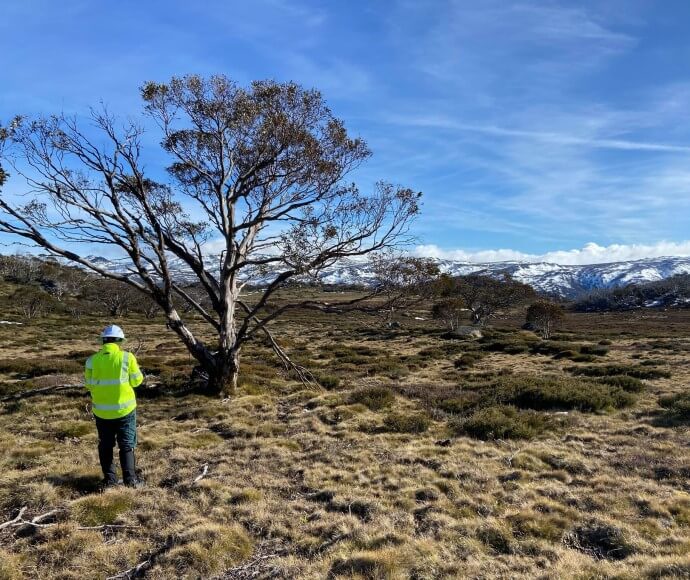The aim of the Cross Tenure Feral Deer Management Project is to develop innovative, cost‑effective and humane control techniques for managing feral deer.
The new techniques are expected to improve the capacity of land managers across New South Wales to keep feral deer populations to a low and manageable number.
The proof‑of‑concept project, which runs from 2019 to 2025, is funded by the NSW Environmental Trust and managed by the NSW National Parks and Wildlife Service.
The research team works closely with neighbouring pastoralists, university researchers, community volunteers, regional councils and Local Land Services.
The study site spans 285 km2, which includes 190 km2 in Kosciuszko National Park and 95 km2 of agricultural land in parts of Moonbah, Grosses Plain and Ingebyra.
The project:
- surveys and monitors deer to accurately track the population in the study site
- measures the impact caused by invasive animals to native vegetation and pasture
- evaluates a range of humane control techniques, including trapping, baiting, ground shooting and aerial culling.

A project officer services cameras in Kosciuszko National Park
Feral deer are removed in accordance with best practice animal welfare requirements.
Kosciuszko National Park contains some of Australia's most beautiful and unique natural landscapes, plants and animals. This includes the main alpine and sub‑alpine area in New South Wales commonly known as the Snowy Mountains.
The region also contains some of the highest concentrations of feral deer in the state. Reducing the number of feral deer will directly benefit many threatened species.
There is strong scientific evidence that feral deer damage the environment. Impacts include trampling fragile sub-alpine ecosystems, eroding waterways and destroying key habitat for threatened species such as the southern brown bandicoot and long-footed potoroo.
The negative environmental impact of feral deer is listed as a key threatening process under NSW conservation legislation.
The invasive species also have the potential to spread diseases such as foot-and-mouth disease.
Recent research shows that feral deer populations are rapidly spreading across the state.
If more tools become available to land managers, deer numbers may be brought under control before they become an even greater environmental and agricultural problem.
Report pests
Widespread pest animals should be reported to your Local Land Services.
Sightings of unusual animals should be reported to the Department of Primary Industries and Regional Development via the website or by phoning 1800 680 244.
Join the project
Volunteers are integral to the success of our study – find out how you can get involved.
Stay in touch
Subscribe to receive the latest news about the Cross Tenure Feral Deer Management Project.